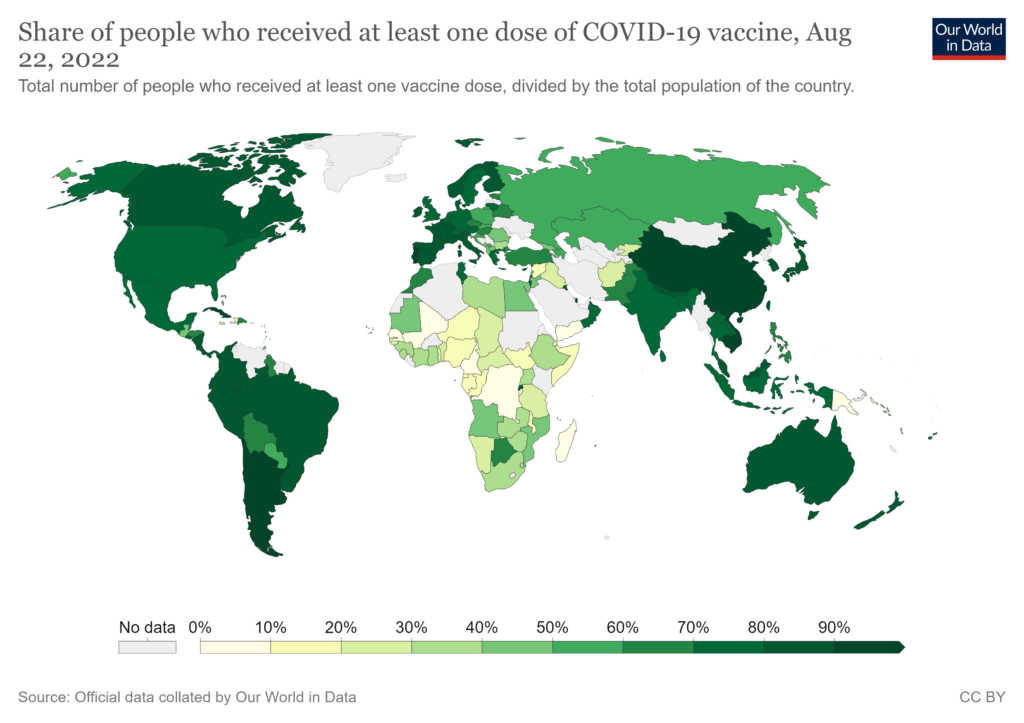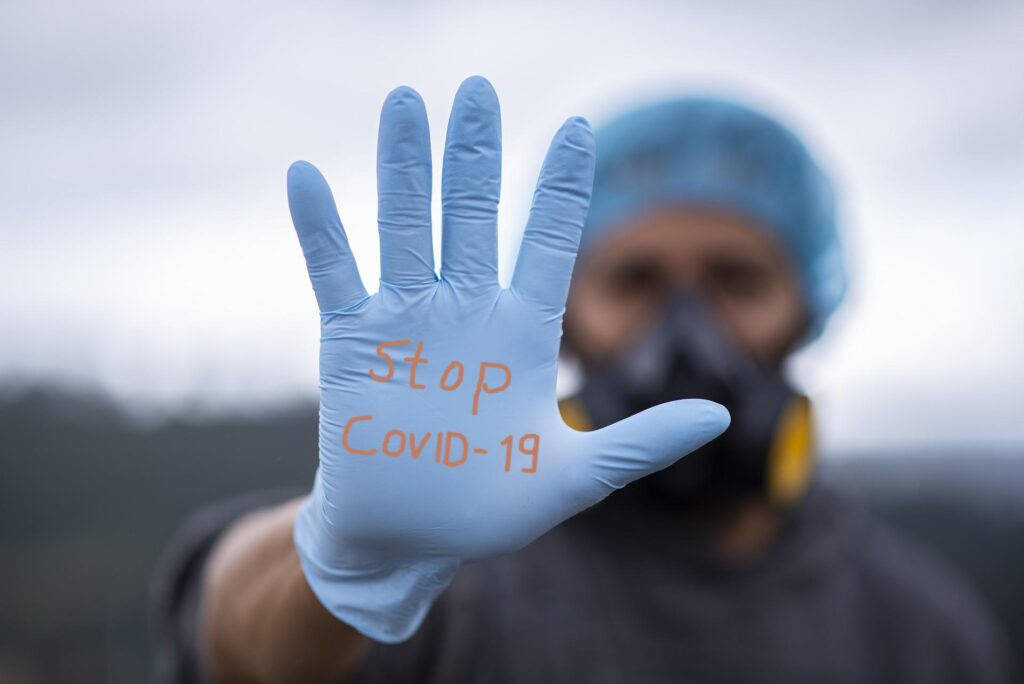What do we know so far? Cases, vaccinations and deaths
Covid-19 cases have steadily declined since January 2022 and there are less than 10,000 new confirmed cases reported day-by-day.
Covid related deaths have been erratic but show an improvement over time. The latest data shows weekly cumulative of 10,000 covid related deaths as of June 6,2022 as compared to 103,487 deaths at the peak of the pandemic around Jan 27, 2021.
As of August 2022, an estimated 67.5% of world’s population has received at least one dose of Covid-19 vaccine, accounting 12.5 billion doses administered globally. Unfortunately, low-income countries especially African countries have < 20% of their population vaccinated with at least one dose. Though a concerning statistic, there seems to be a slow improvement overtime.

Types of vaccines, controversies and possibilities
Predominantly, Covid-19 vaccines currently in the market are of two types: conventional vaccines and the new mRNA vaccines
Conventional vaccines as the name suggests, is an old standard way of injecting a weak and damaged virus into the body to make us immune against the original and stronger virus. The vaccine causes enough agitation in the body that causes the immune cells to prepare antibodies for a future invasion of the real virus.
While mRNA vaccines are a new form of vaccines which takes an entirely different approach. The mRNA in the vaccine produces a specific type of protein that will be recognised by the immune cells to produce antibodies for the virus. As opposed to the weak and damaged virus, the mRNA vaccines only introduces specific part of the virus that the antibodies can target.
Read more about how vaccines work and the difference between conventional and mRNA vaccines here.
The government, major pharmaceutical companies and collaborations, donations from good Samaritans have poured in billions of dollars into researching, optimising and distributing the vaccines all over the wold in an unprecedented way.
While this helped healthcare workers to save millions of lives; sceptics, conspiracy theorists and anti-vaxxers have caused significant hurdles to the vaccination program. More than 20% of the population worldwide have not been vaccinated, no thanks to the sceptics.
One of the main reason for scepticism (for not taking the vaccines) is the unprecedented short amount of time it took to develop and deploy the vaccines for covid-19, but not similar in other cases.
Looking at the same thing in different perspective, we have achieved ~68% vaccination in just 2 years of time if all efforts are collectively put towards one and only one goal.
Treatments drugs current and clinical trials
The disease is categorised by severity into asymptomatic, mild, moderate, severe and critical. For mild and moderate disease which does not require hospitalisation, current FDA guidelines is to treat the symptoms such as paracetamol for pain and fever along with steroids. Remdesevir is suggested only if the patient is at a risk of going into severe stage.
For hospitalised patients with severe and critical disease, the current guidelines is to treat with Remdesivir, baricitinib, tocilizumab and/or dexamethasone (steroid) based on the severity.
Other drugs recommended for use that have shown good potential in the lab are monoclonal antibody drugs. Drugs like Bebtelovimab, Etesevimab, Casirivimab, Tixagevimab have shown good response by stopping (neutralising) the omicron variant in a petri-dish (in-vitro) but is still undergoing active testing in human to understand their effectiveness.
How severe is the disease now
Though viruses are technically not living organisms, they are active when they infect an organism (host). Just like other microorganisms, they can also change their form by intent or accident.
The changed form, different from the original is now known as a variant. As we all are aware about the names of different forms of Covid-19 such as delta, omicron, etc.,
Formation of a new variant is a matter of odds, sometimes the variant is useless and dies very quickly; but sometimes gets additional attributes and becomes a deadlier version such as the Omicron variant.
Currently, the Omicron variants BA.2, BA.4 and BA.5 are the dangerous form known to us. As of June 2022, there may be new sub-variants of Omicron called BA.2+L452X, BA.2.75 and XAK, which are of concern and may emerge deadlier than before or may die out soon.
What can we do to stop this mess?

Vaccinated population show a phenomenon call ‘herd immunity’ which means if people surrounding you are immune to the virus, the kill it when they get infected and do not spread the disease. When the disease cannot spread to people who are not vaccinated or cannot be vaccinated, there is very less chance of new variants emerging.
Following public health guidelines and personal hygiene also enhances the chances of getting rid of this miss sooner.
Finally, reduction is deforestation, poaching, game hunting and eating meat of wild & exotic animals, will not only save us from new deadlier diseases but also helps the planet heal after all the devastation we have caused.
References
- Mathieu, E. et al. Coronavirus Pandemic (COVID-19). Our World Data 5, 947–953 (2020).
- Hospitalized Adults: Therapeutic Management | COVID-19 Treatment Guidelines. https://www.covid19treatmentguidelines.nih.gov/tables/therapeutic-management-of-hospitalized-adults/.
- Anti-SARS-CoV-2 Monoclonal Antibodies | COVID-19 Treatment Guidelines. https://www.covid19treatmentguidelines.nih.gov/therapies/anti-sars-cov-2-antibody-products/anti-sars-cov-2-monoclonal-antibodies/.
- Nonhospitalized Adults: Therapeutic Management | COVID-19 Treatment Guidelines. https://www.covid19treatmentguidelines.nih.gov/tables/therapeutic-management-of-nonhospitalized-adults/.
- Tracking SARS-CoV-2 variants. https://www.who.int/en/activities/tracking-SARS-CoV-2-variants/.